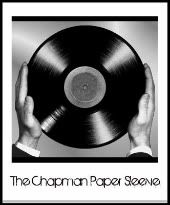
Soundgarden is one of my favorite bands. This is not the late 90's boy band duo who want to bathe with you in a sea--that's Savage Garden. Soundgarden is the Thor of the early-to-mid nineties, falling like a thousand hammers from the sky, plunging into fiery oceans of testosterone, eating raw meat with bare hands. Their 1991 release Badmotorfinger is still (maybe) my favorite album of all time. So when Soundgarden reunited last year after a 1997 breakup and began assembling a new album, I was thrilled into hyperventillation. But. Now that I've heard their first new song in 13-15 years, "Live to Rise," I am sunken with sadness. It was available for about a week on the web, but now I can't find it anywhere. I'll link it when it's around again. In any case, here's why it sucks.
Chris Cornell had (and still sort of has) a lovely, gritty, thick and wailing voice that deserves reverence. Just as significant was his killer vocal lines that wrapped themselves around Soundgarden's chaotic instrumental bombasm and zapped it into another dimension. Cornell's ability to marry melody and powerhouse vocalwork with bizzare musicianship was sublime, and songs like "Superunknown", "Outshined" and "Burden In My Hand" testify to it. Soundgarden was amazing not just because they were musically challenging, but because they found vocal melodic gold in earthquaking songs. Softer tracks too, such as "Mind Riot", "Blind Dogs" and "Zero Chance", exhibit this dance of melodic powers, as does Cornell's work outside of Soundgarden in the 90s and early 2000s. Soundgarden without Cornell would certainly have been a troupe of astoundingly creative musicians that I would surely enjoy, but it is Cornell's presence that sets them apart. Soundgarden was divinely unique and exciting, and compared to most rock acts since, they still are.
But you wouldn't know any of this from "Live to Rise". If you listen to it, do so after you've listened to any of Soundgarden's earlier songs linked above, because you'll hear a marked difference in presence and form. Not an intriguing difference, but a generic one. I, with all due respect, blame Cornell.
I blame Cornell not because of his weakened voice--while noticeably deteriorated from the old days, his voice still steamrolls hugely and every now and then hits those mile-high-choir-boy-waily notes, God love him--but because of his weakened songwriting. While there are strong moments on Cornell's past four albums--Audioslave's last two records Out of Exile (2004) and Revelations (2006), and his last two solo albums Carry On (2007) and Scream (2009)--at large those albums signal an artistic plunge in Cornell's approach to writing melody and song. I issue this criticism with the caveat that artistic developments and explorations and changes are important, and I generally welcome them as a music fan. I don't see myself as a listener who demands that artists stay the same forever. So I feel that Cornell's writing is worse not because it's different, but just because it's bad.
Let me offer an explanation of what and a hypothesis for why this is. Chris Cornell was a brilliant writer who so naturally approached things from such odd and delightful angles that, in order for him to come at songwriting in a new way, he unknowingly, and with the best of intentions, played on none of his strengths and started writing bad music. I have no other explanation for the shift from the grounded melody of Cornell's 90s solo work (see "Seasons", "Sweet Euphoria", "When I'm Down") to the flighty and tuneless inanity of his modern solo material ("Arms Around Your Love", "Safe And Sound", "Killing Birds", "Part of Me"... basically most tracks from Carry On and Scream, as well as many from the aforementioned Audioslave records).
Soundgarden's "Live to Rise" is of this same latter ilk. It sounds like a rewrite of the terrible album opener "No Such Thing" from Cornell's 2007 record Carry On. Line them back to back and all their features match: a blistering opening riff promises treasures and then betrays us, falling into the most disinterested melody of all time sung over spiritless acoustic guitars, and from there finds its way back to the awesome riff (thank heaven) only to be marred (*arg*) by Cornell's lazy attempt at an anthemic chorus. This song could have been written by anyone. It is the first Soundgarden song to ever share the growing characteristic of Cornell's other late music: it doesn't matter! There is no invigorating interplay between complicated rhythms and vocal delivery, no Thor-like battles in the sky. Just a paint-by-numbers, connect-the-dots bid for rock relevance. I was convinced this this band would and could avoid sounding pointless forever--I never worried that they would fail. So maybe I'm just startled, and this long-winded analysis is just me trying to get my breath back. And maybe, as my sister Camilla reminded me recently, I'll end up loving it, since all my current favorite bands sounded stupid to me on first listen.
And it's possible the band won't fall as far and hard as "Live to Rise" suggests: Cornell basically apologized for the song, saying that the upcoming album will deliver on Soundgarden's past promise the way this song doesn't. I hope he's right. But all the trends point to Cornell sinking this Titanic, and if he does, I'll be sad. I'll move on, I'll still listen to Badmotorfinger, and I'll still wear my Soundgarden shirt. But right now, before I listen to "Live to Rise" again in an effort to like it, I need to mourn.


No comments:
Post a Comment
Critical thinking encouraged.